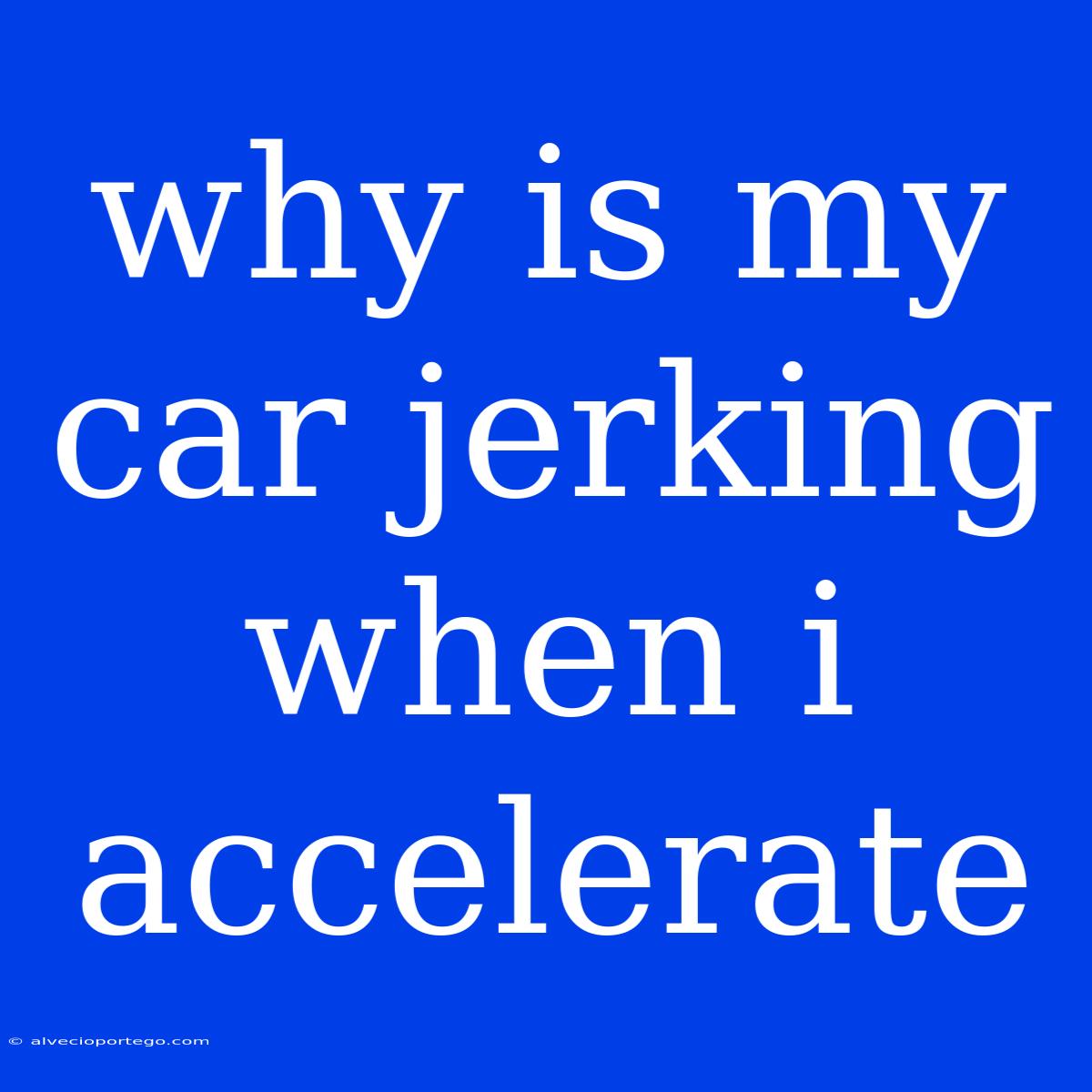Why Is My Car Jerking When I Accelerate?
Experiencing your car jerking when you accelerate can be alarming and frustrating. This issue could be caused by a variety of factors, ranging from simple fixes to more serious problems. Here's a breakdown of the most common reasons for car jerking during acceleration:
1. Spark Plugs and Ignition System Issues:
- Problem: Worn-out or fouled spark plugs can prevent a smooth and consistent ignition, leading to a jerky acceleration.
- Symptoms: Misfires, hesitation, rough idling, and decreased fuel efficiency can also accompany jerking.
- Solution: Inspect and replace spark plugs according to the manufacturer's recommended intervals. Ensure the ignition wires and coil packs are in good condition and functioning properly.
2. Fuel System Problems:
- Problem: Clogged fuel filters, dirty fuel injectors, or a faulty fuel pump can restrict fuel flow, causing a lack of power and jerking during acceleration.
- Symptoms: The car may also struggle to start or experience a decrease in power.
- Solution: Have the fuel filter replaced regularly. Consider a fuel injector cleaning or replacement. Inspect and test the fuel pump for proper function.
3. Transmission Issues:
- Problem: Worn-out transmission fluid, damaged transmission components, or faulty solenoids can lead to slipping or jerking in the transmission, particularly during acceleration.
- Symptoms: Other transmission problems like rough shifting, slipping gears, and whining noises may also occur.
- Solution: Consult a qualified mechanic to diagnose and address any transmission problems.
4. Engine Misfire:
- Problem: A misfire occurs when one or more cylinders fail to ignite properly. This can result in a jerky acceleration.
- Symptoms: Engine stumbling, rough idling, and reduced fuel efficiency.
- Solution: Diagnosing the cause of the misfire is crucial. Potential culprits include faulty spark plugs, ignition wires, fuel injectors, or a problem with the engine control unit (ECU).
5. Vacuum Leaks:
- Problem: A leak in the vacuum system can disrupt the airflow to the engine, leading to inconsistent performance and jerky acceleration.
- Symptoms: Other signs of a vacuum leak include a hissing sound, rough idling, and decreased engine power.
- Solution: A thorough inspection of the vacuum hoses and components is necessary to locate and repair any leaks.
6. Mass Airflow Sensor (MAF) Issues:
- Problem: The MAF sensor measures the amount of air entering the engine. A faulty sensor provides inaccurate readings to the ECU, causing erratic fuel delivery and jerking.
- Symptoms: Rough idling, hesitation, and decreased fuel economy are also associated with a faulty MAF sensor.
- Solution: Clean the MAF sensor or replace it if it is damaged or beyond cleaning.
7. Worn-Out Clutch (Manual Transmission):
- Problem: A worn-out clutch in a manual transmission can slip during acceleration, leading to a jerky response.
- Symptoms: Slipping clutch, difficulty engaging gears, and a burning smell may accompany the jerking.
- Solution: Replace the clutch and related components.
Important Note: If you experience jerking while accelerating, it's crucial to address the issue promptly. Ignoring the problem can lead to further damage and costly repairs. Consult a qualified mechanic for a proper diagnosis and repair.

